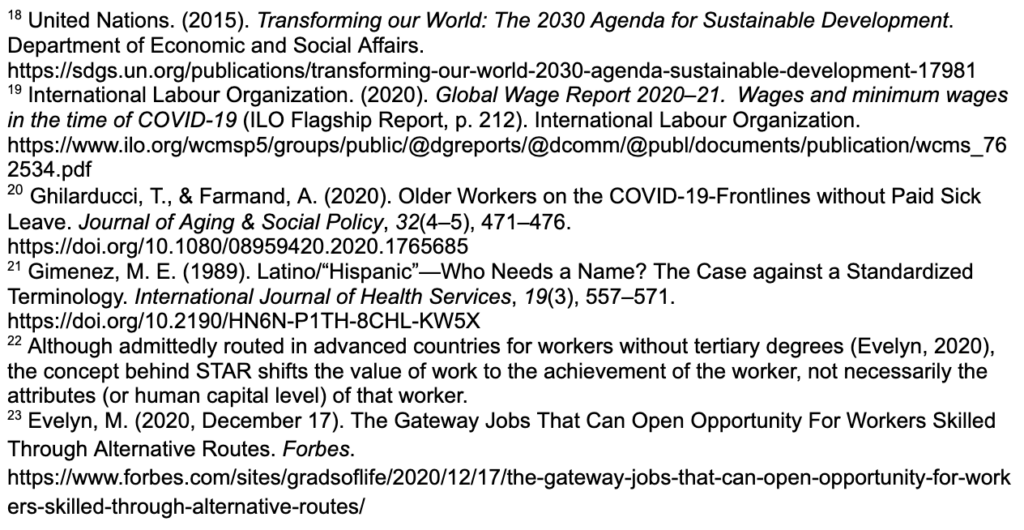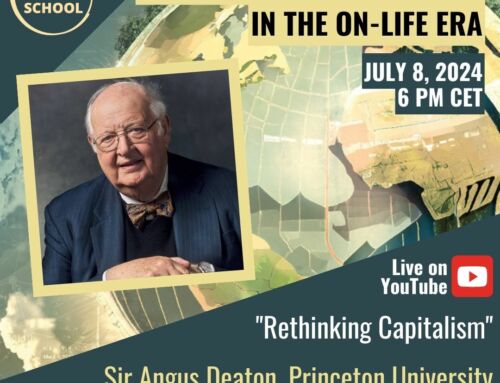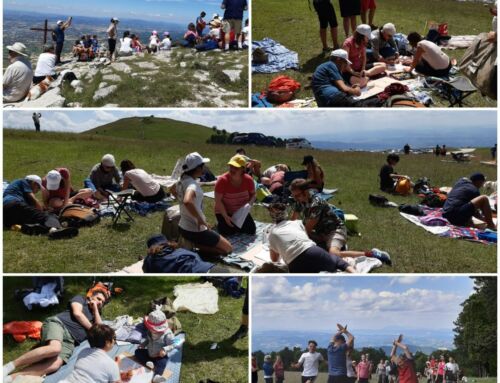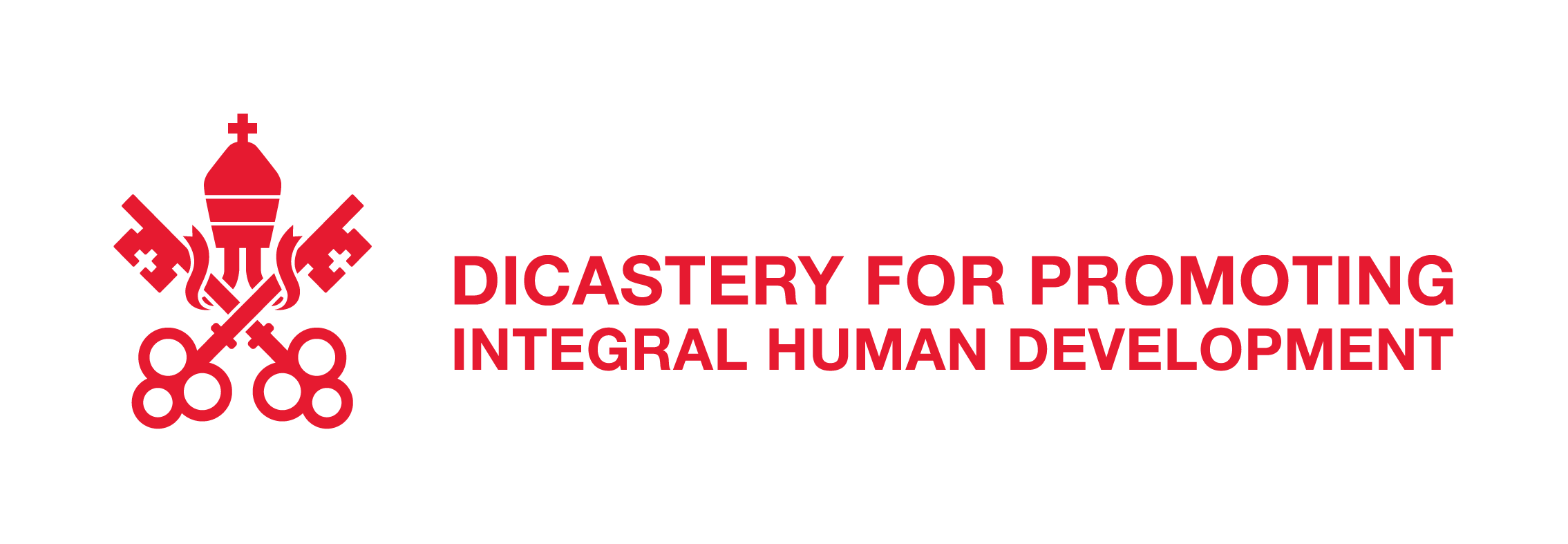
The value of work beyond wages
by: Tracey Freiberg
In commemoration of International Labor Day, we present one of the texts that are part of the book “The Economy of Francesco, a glossary to repair the language of economics”. The article, written by Tracey Freiberg, proposes a review and reflection on the concept of work, from a fraternal, fair and inclusive perspective, such as the one that has matured within the EoF community.
The concept of work is very clearly defined in economics textbooks. An individual splits their time between two functions: labor (for a wage) or leisure (non-wage time). Under the neoclassical labor economics interpretation, formalized labor is compensated by a wage whereas leisure encompasses all nonwage activities such as sleep, vacations, exercise, grocery shopping, and cleaning your home. Ultimately, it is the goal of the individual to select a utility-maximizing level of work (in hours), considering the remaining time in a 24-hours day will be spent at leisure (for no wage). All else constant, the cost of any leisure activity increases as wages increase.
Economics has always been interested in how the decision to work (or leisure) extrapolates into societal well-being. We are taught that economic actors respond to incentives. We are taught that human capital accumulation, most notably education, leads to more productive workers with higher incomes., By examining variables like employment, wages, and income, we are taught to assume outcomes serve as proxy variables for well-being in common vernacular. If this is the case, is work only valuable when it’s paid? Or, alternatively, is paid work the only important work? And furthermore, if work is compensated or justified through wages, do wages justify working conditions?
The Economy of Francesco seeks to usher in a new paradigm of thought surrounding economic issues worldwide. A re-evaluation of how we define, and perhaps, more importantly, value, work is a vital component for more sustainable and inclusive economies. As such, the following essay approaches these questions through a more subjective lens by focusing on the value of work, frameworks of paid work and time, and the introduction of new terminology for work in the future.
Value of Work
It is undoubtable that payment associated with labor time carries some incentive for people to work – i.e. the substitution effect in a labor economics textbook – even if that wage is dangerously low, relative to global living standards. Yet, if we look at the individuals engaged in (paid) work, some will say that wages primarily incentivize them to work, but some will point to other sources as the motivation to work. For example, an individual may work to appease a sense of self-worth, or they may work to reciprocate the kindness of others. Similarly, Pope Francis asserts that work is an existential part of the human condition, simultaneously addressing vocation and meaning alongside motivations to maximize gains. Thus, when we seek to define work we need to consider the internal value of work separately and in coordination with the economic well-being component. In other words, the price of work (i.e. wage) should be distinguished from the broader concept of the value of work.
Regarding the price of work, similar to other goods and services, the market for labor is thought to be influenced by the forces of supply and demand, which, when left to their own devices, appropriately determine the price of labor. As such, we are taught to associate higher wages with higher-skilled jobs, and we assume the overall goal of workers is to choose a utility-maximizing combination of paid work and leisure. Perhaps more than other markets, labor has proven to be increasingly complex as wages are ultimately thought to influence well-being. Many wage regulations and policies worldwide exist to address the shortcomings of allowing markets to determine the value of labor.
 By allowing markets to determine wages, we also, perhaps erroneously, allow wages to function as a signal of value. Higher-paying occupations worldwide, such as doctors and lawyers, typically are associated with specialized skill sets and high barriers to entry, which ultimately provides ample reason to value such individuals with higher degrees of importance. Similarly, the same occupation can get higher wages in different countries – if a primary school teacher with 15 years of experience in Germany earned an average of $80,407 (in USD) per year, is the German teacher more valuable than their counterpart in Israel, who earned an average of $33,163? It should be noted that social and economic systems within countries can also influence wages, but the simplified example of teachers’ nominal salaries demonstrates the complex nature of paid work. Hence, such perceptions of the value of work highlight disparities worldwide across and within occupations, and it causes substantial devaluation and inequalities of entire classes of workers.
By allowing markets to determine wages, we also, perhaps erroneously, allow wages to function as a signal of value. Higher-paying occupations worldwide, such as doctors and lawyers, typically are associated with specialized skill sets and high barriers to entry, which ultimately provides ample reason to value such individuals with higher degrees of importance. Similarly, the same occupation can get higher wages in different countries – if a primary school teacher with 15 years of experience in Germany earned an average of $80,407 (in USD) per year, is the German teacher more valuable than their counterpart in Israel, who earned an average of $33,163? It should be noted that social and economic systems within countries can also influence wages, but the simplified example of teachers’ nominal salaries demonstrates the complex nature of paid work. Hence, such perceptions of the value of work highlight disparities worldwide across and within occupations, and it causes substantial devaluation and inequalities of entire classes of workers.
One such class of workers falls into an industry called the care economy. Tasks traditionally performed in the “private realm” within households such as cleaning, cooking, and childcare (“homemaking”), are now more readily available for public consumption (for a price) as the social contract within households has changed. As nonmarket work has steadily entered the market system, especially in the advanced or OECD societies, the price, and ultimately perceived value, of such labor has remained comparatively low. In most circumstances, purchasing care work only partially substitutes for nonmarket home activities – i.e. you can pay for hours of childcare, but you are still responsible for the care of your child in the hours you don’t pay for. Care jobs are typically viewed as low-skill labor, implying the amount of human capital accumulation required for care employment is relatively low. In other words, any activity one could hypothetically undertake themselves, such as cleaning their home, will incentivize low prices (often resulting in low wages for care workers), versus a specialized activity, such as legal advice or medical care, in which we are willing to pay higher prices (often resulting in higher wages for specialized workers like lawyers or doctors). Further, it is not surprising that many care jobs are also more likely to be undeclared, or part of the informal or shadow economy. According to the International Labour Organization, as much as 90 percent of women in Sub-Saharan Africa and 89 percent of women in South Asia engage in such informal employment, a pattern brought to the fore by the global COVID-19 crisis.
“More than other markets, labor has proven to be increasingly complex as wages are ultimately thought to influence well-being.”
Paid Work and Time
According to neoclassical labor economics, the other use of time we can engage in is unpaid leisure time, alluded to in the previous section in the case of homemaking. Researchers have examined how people allocate their time between labor and leisure, referred to as work-life balance in 21st century economies, in a variety of ways. Notably, Becker’s Theory of the Allocation of Time allows individuals to three options in how to spend their time: formalized work (for a wage), household production, and consumption time. Here, leisure has been reclassified into two uses of time related to the economic decisions of the household. For example, household production could be making dinner while consumption could be buying groceries for the dinner. More recently, Tontoh added another interpretation of time and decisions through The Triple Day Thesis, again allowing for household-centric decisions. The Triple Day focuses on how mothers spend their time: the Single Day is spent caring for family, the Double Day is spent in formalized wage labor, while the Triple Day is spent on self-reproduction activities such as sleep, education, or social (consumption) activities. As such, the terms Single Day, Double Day, and Triple Day correspond to the activities mothers participate in on a daily basis, with an emphasis on the inability for many mothers to engage in the Triple Day due to care and paid work responsibilities.
Both Becker and Tontoh’s interpretations of time hit on an important theme: markets reward paid labor time. Although no one would argue the positive externalities to society by care activities like raising children, modern market systems do not reward such endeavors (with wages or income). The family-friendly policy literature often points to paid family leave (PFL) as a method for navigating work-life balance decisions faced by modern households, but these programs require labor force participation to collect the benefit. Yet, the often gendered usage of PFL can further widen the gender wage gap. For example, Scandinavian countries are remarkable for their family-friendly welfare policies, which have increased the participation of women (and mothers) in the paid economy but have simultaneously promoted gender-based occupational segregation and inequality in these countries., Women are more likely to be excluded from high-status, high paid jobs in the Scandinavian labor markets. Many welfare states globally require beneficiaries of social programs to be members of the formalized labor market, and PFL policies are no different. Perhaps with the exception of parental allowance programs in Germany (Elterngeld) or conditional cash transfer programs in Latin American countries (such as Prospera in Mexico), there is no financial compensation for homemaking work, and therefore it is often viewed as less valuable than (paid) labor, in spite of the positive externalities correlated to childcare.
Outside of our formal market systems, social or cultural structures around the world influence labor-leisure decisions. For example, indigenous communities function and exist adjacent to the dominant market-based systems, while experiencing higher levels of poverty. Such communities have been forced to adjust to global languages, currencies, and processes. According to Peredo, indigenous populations have simultaneously been deprived of access to their land and natural resources in favor of government initiatives while having minimal opportunities to use “public” services such as health care. Societies such as the Peruvian communities of the Andes historically structure their local economies around traditions of solidarity and reciprocity, directly speaking to the intrinsic value of labor versus the extrinsic incentives such as wages. Yet, global society does not assign a market price to such community-based work, creating overlooked and underserved, relatively, groups of global citizens.
Terminology Regarding the Work of the Future
Respecting the importance of intrinsic values of labor, especially within culturally based societies such as our indigenous populations, we need to update the language we use to discuss work and issues surrounding work. Perhaps, by using a more inclusive vocabulary, the issues with modern work outlined in this essay can be addressed, albeit slowly.
Various international organizations have made efforts to redefine work for the greater good. For example, the International Labour Organization (ILO) defines decent work beyond labor for a wage to include, “opportunities for work that is productive and delivers a fair income, security in the workplace and social protection for families, better prospects for personal development and social integration, freedom for people to express their concerns, organize and participate in the decisions that affect their lives and equality of opportunity and treatment for all women and men.” The “decent work” mantra has been adopted worldwide, perhaps most notably through number eight (#8) in the United Nations’ Sustainable Development Goals (SDGs). In the Economy of Francesco, we feel “decent” implies a comparative standard. Given the internally driven motivations for work, we feel dignified is a better term because the associated perception of work is set by the worker, not by an external organization setting a standard. By placing dignity at the heart of work, we can move away from the errors of the past when assigning value to work.
Similarly, the way we identify workers is problematic. For example, the COVID-19 pandemic shed light on an already stratified labor market system with an estimated 55 million domestic workers, two-thirds of which are women, losing their jobs or suffering wage reductions. Essential front-line workers such as nurses, home health aides, and teachers, who are more likely to be a member of a marginalized community, were asked to do more work for the same or less pay. As important as essential workers have proven to be when we assign terminology such as “low-skilled” to describe the type of work being performed, we are subject to flawed and stereotypical categorizations of humanity. Although, as of 2022, there has been no agreement on a suitable substitute, we feel that something like skilled through alternative routes (STAR) is a better description of ability at work. Or, at a minimum, it can start a conversation on suitable ways to describe different types of work while preserving dignity.
As the world continues to evolve, it is our job to continue to account for the humanity of work, as societies can be more inclusive and successful when we treat work with dignity. We must remember that the societal value of a job is not always properly expressed by its market price. As a global initiative, the Economy of Francesco will continue to spearhead conversations with participants across the world about how we can address the issues associated with definitions of work.
References






Tracey Freiberg, PhD
Paid Leave and Labor Economics Researcher
St. John’s University, The Peter J. Tobin College of Business
















